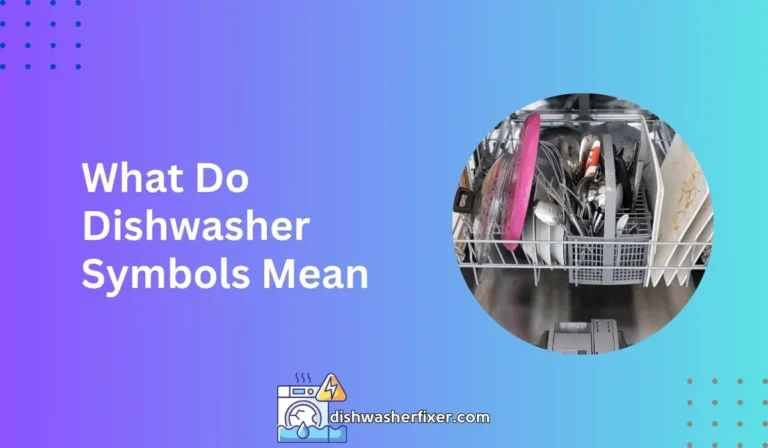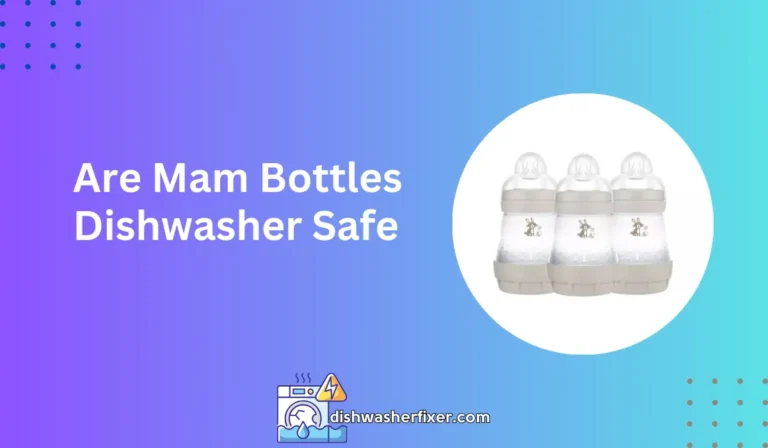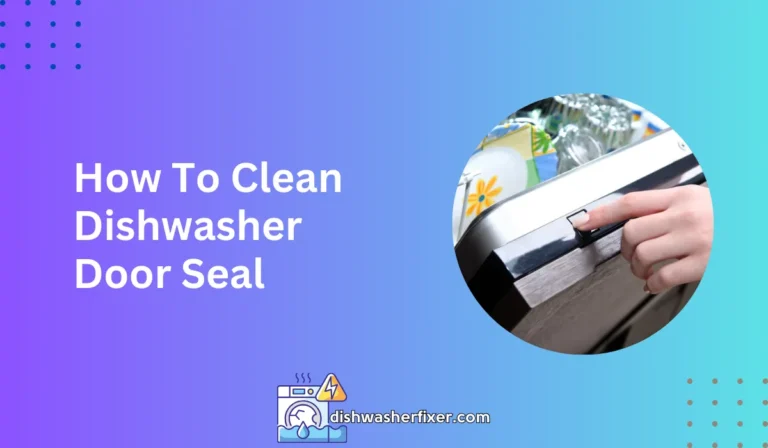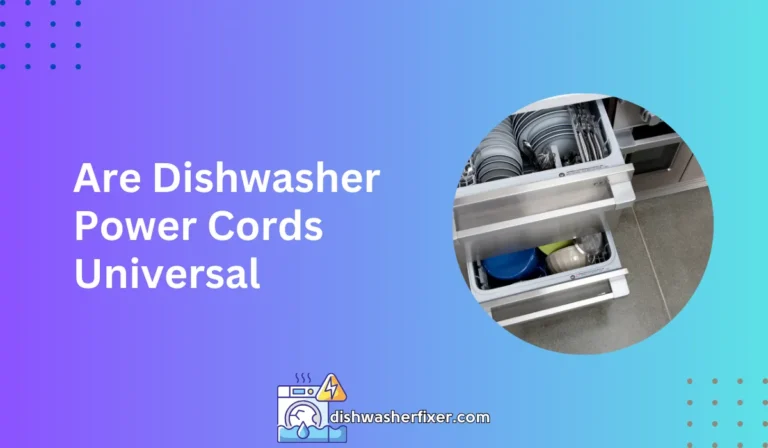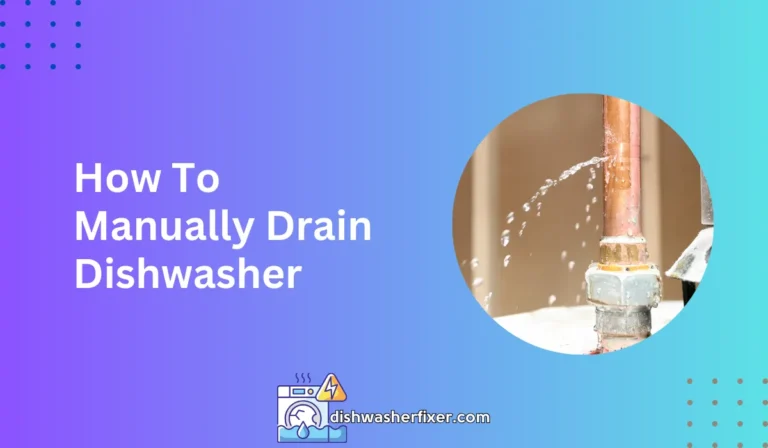Why is Dishwasher Soap Not Dissolving? Quick Fixes Here!
Dishwasher soap may not dissolve due to a cold water supply, overloading, or blocked dispenser doors. Ensure hot water access, proper loading, and clear dispenser paths for optimal soap dissolution.
Common Causes for Dishwasher Soap Not Dissolving
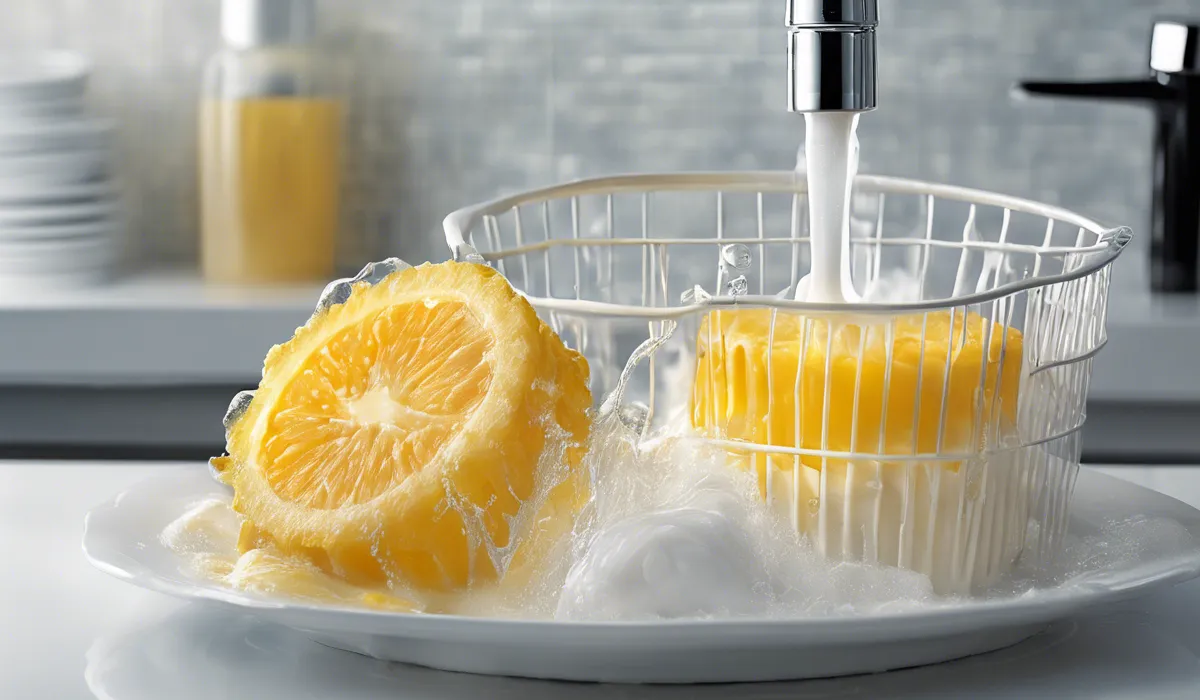
Improper Loading of Dishes
When dishes are not loaded correctly, they can block the water jets and prevent the dishwasher soap from dissolving properly.
It’s essential to place dishes so that water can circulate freely. Avoid stacking dishes or placing large items in a way that they obstruct the spray arms’ path.
Use of Old or Low-Quality Dishwasher Detergent
Dishwasher detergents have ingredients that can lose effectiveness over time. Using fresh, high-quality detergent ensures that the soap dissolves correctly and cleans your dishes effectively.
Faulty Soap Dispenser
A dispenser that doesn’t open during the wash cycle can prevent the soap from dissolving. The dispenser could be blocked by residue, or there might be a mechanical or electrical fault.
Water Temperature Issues
For dishwasher soap to dissolve effectively, the water needs to be hot enough. If the water entering your dishwasher is too cold, the soap may not dissolve as it should.
Low Water Pressure or Clogged Spray Arms
Water pressure that’s too low won’t allow the arms to spray with enough force, which can leave soap undissolved. Clogged spray arms can also be the culprit, preventing water from reaching the detergent.
Troubleshooting and Fixes
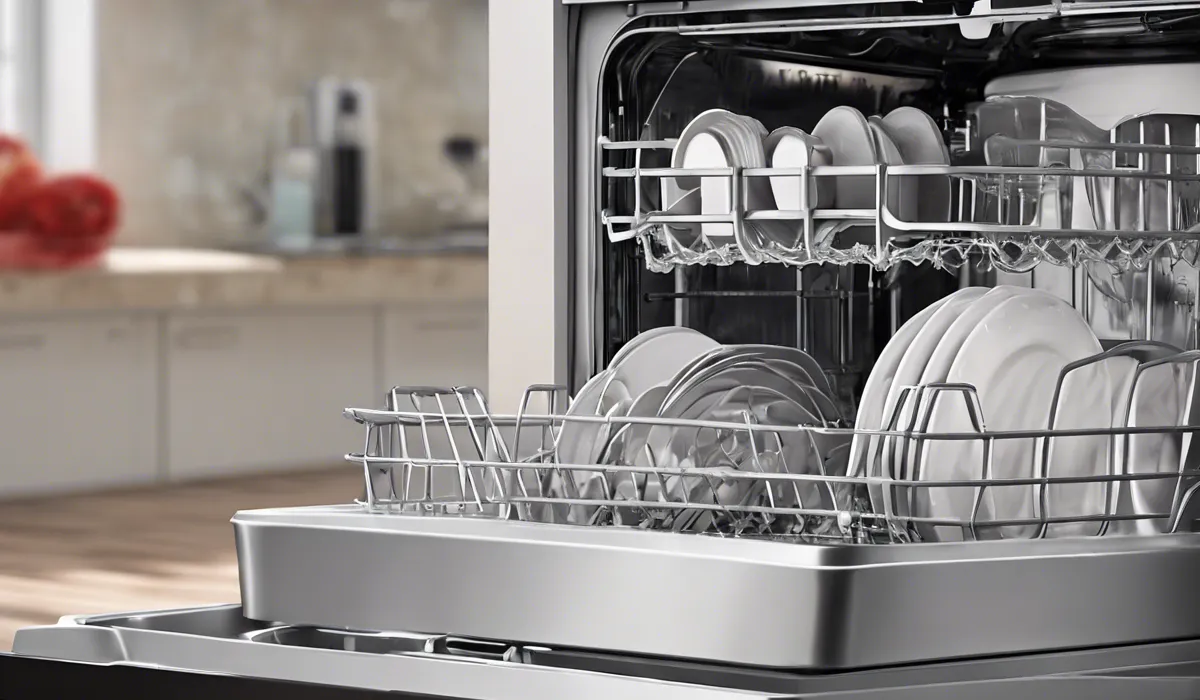
Rearranging Dishes for Optimal Water Flow
Start by rearranging the dishes to ensure that none are blocking the spray arms. Make sure that utensils are not nesting together and that bowls and cups are facing downwards.
Checking and Cleaning the Dispenser
Inspect the dispenser for any blockages and clean it thoroughly. If the dispenser is faulty, you may need to replace it to ensure that it opens correctly during the wash cycle.
Ensuring Water is Hot Enough for Detergent to Dissolve
Check the water heater settings to ensure the water is reaching the optimal temperature for your dishwasher, typically around 120°F to 150°F.
Testing and Increasing Water Pressure if Needed
If water pressure is low, it may be necessary to clean the valves and hoses connected to your dishwasher or consult a plumber to address any issues with your home’s water pressure.
Cleaning or Replacing Spray Arms
Remove the spray arms and clean them to remove any clogs. If they are damaged, consider replacing them to ensure proper water flow.
Using Fresh, High-Quality Detergent
Always use fresh, high-quality detergent and store it correctly to prevent clumping that could affect its ability to dissolve.
Maintenance Tips to Prevent Future Issues

Regularly Clean and Inspect Dishwasher Components
Keeping the dishwasher clean is crucial. Regular maintenance includes wiping down the seals, checking for residue on the spray arms, and cleaning the filter.
Follow Manufacturer’s Guidelines for Loading Dishes and Detergent Use
Refer to your dishwasher’s manual for specific instructions on how to load dishes and how much detergent to use. Proper loading and detergent amounts ensure better cleaning and prevent issues with undissolved soap.
Periodically Run the Dishwasher Empty with a Cleaning Agent
Running an empty cycle with a specialized cleaning agent can help maintain the interior of the dishwasher and prevent buildup that could hinder performance.
Soften Hard Water with Additives if Necessary
If you have hard water, consider using additives or a water softener to prevent mineral buildup that can affect your dishwasher’s functionality.
Keep the Dishwasher Seals Clean and in Good Condition
Regularly check the seals around the door for any food particles or damage. Clean them to ensure a tight seal, which prevents leaks and ensures the dishwasher works efficiently.
FAQs About Dishwasher Soap Not Dissolving
Why might dishwasher soap not dissolve during a wash cycle?
Dishwasher soap may not dissolve if the water supply is too cold, the dishwasher is overloaded, or the dispenser doors are blocked.
How can I ensure my dishwasher soap dissolves properly?
Make sure the dishwasher is connected to a hot water supply, isn’t overloaded, and that nothing is blocking the dispenser doors.
What role does water temperature play in the dissolution of dishwasher soap?
Hot water is essential for the soap to dissolve properly; if the water is too cold, the soap may not dissolve.
Can overloading the dishwasher prevent soap from dissolving?
Yes, overloading the dishwasher can restrict water circulation and prevent soap from dissolving effectively.
What should I check if my dishwasher soap dispenser door is not opening?
Check for any obstructions that may be blocking the path of the dispenser door and ensure it can open freely during the wash cycle.
Final Thoughts
Dishwasher soap may fail to dissolve if the appliance receives cold water, is overloaded, or if the dispenser doors are obstructed.
To ensure the soap dissolves properly, it’s crucial to provide hot water, avoid overloading the dishwasher, and maintain clear paths for the dispenser doors.
Useful Resources
- https://gyr.fortlauderdale.gov/greener-government/recycling-waste-reduction/solid-waste-yard-waste-recycling-services/green-your-routine-waste-disposal-directory/household-grease-fogs
- https://ecology.wa.gov/blog/january-2014/when-soap-and-water-are-not-a-good-thing
- https://oconto.extension.wisc.edu/files/2011/02/Baking-Soda.pdf
